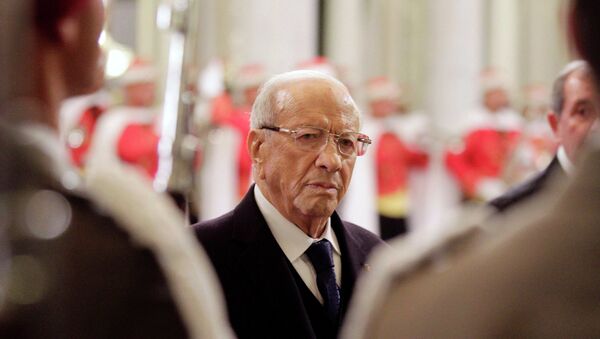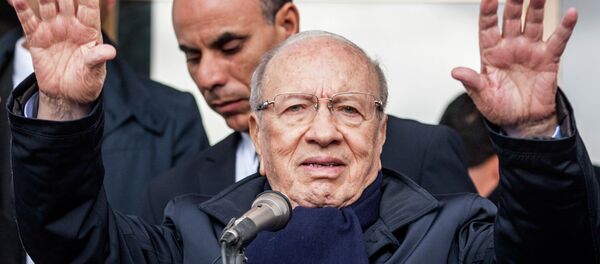During his oath speech Essebsi vowed to ensure national reconciliation as "president of all Tunisians," according to the BBC.
"There is no future for Tunisia without consensus among political parties and members of civil society," the BBC quoted Essebsi as saying.
Essebsi defeated interim President Moncef Marzouki during the presidential elections December 21, winning 55.6 percent of votes.
Born in 1926, the newly elected Tunisian president served as Minister of Foreign Affairs from 1981 to 1986 and as Prime Minister from February 2011 to December 2011. He is also the founder of the secular Nidaa Tounes party, which won the parliamentary elections in Tunisia in October 2014.
Following the coup against Ben Ali in 2011, also known as the Jasmine Revolution, the country was ruled by an interim government. The revolution was triggered by the poor social and economic situation in Tunisia, as well as by a lack of democratic rights and freedoms.






